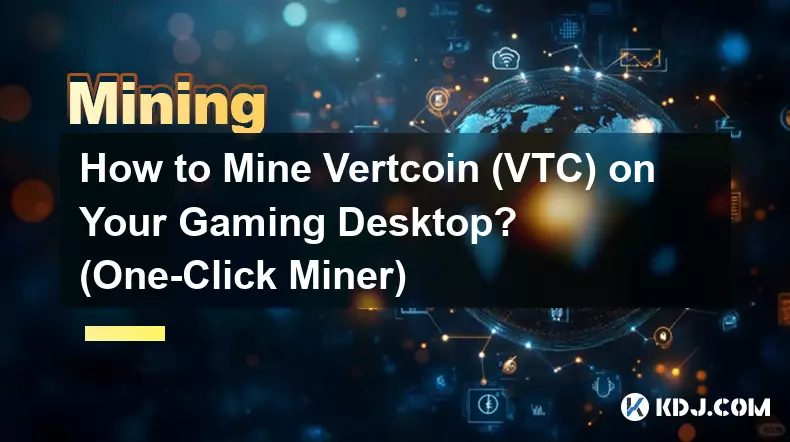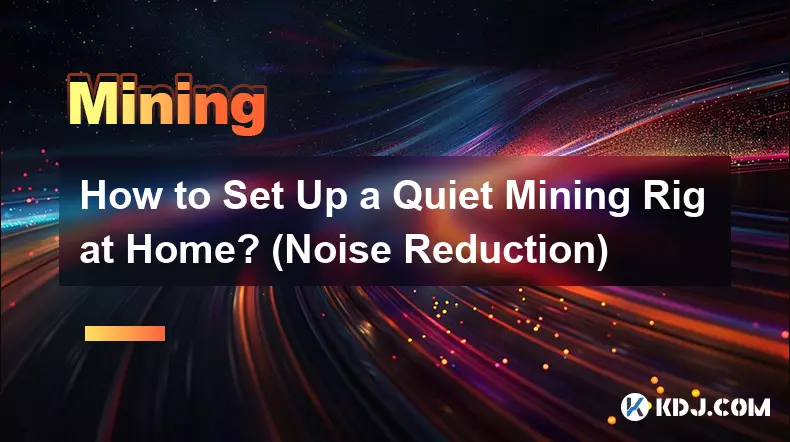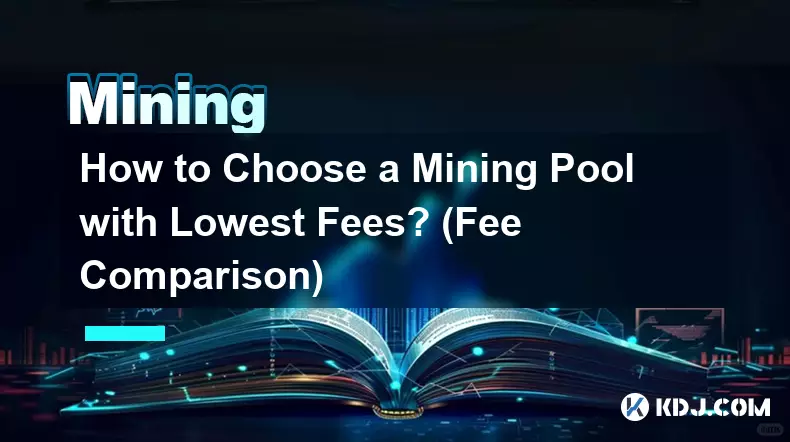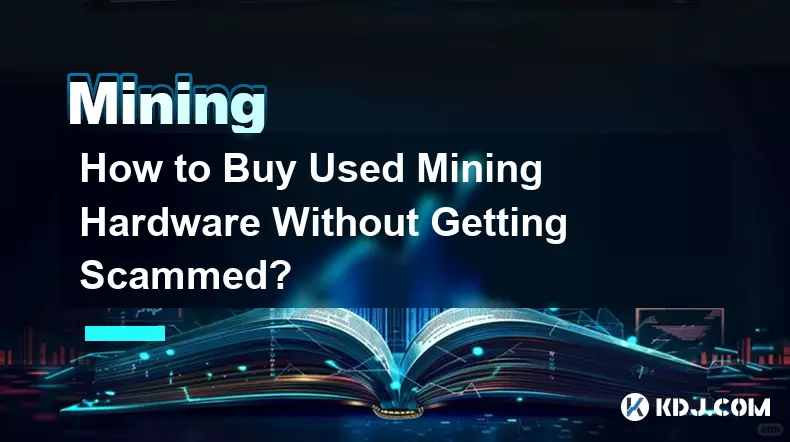-
 bitcoin
bitcoin $87959.907984 USD
1.34% -
 ethereum
ethereum $2920.497338 USD
3.04% -
 tether
tether $0.999775 USD
0.00% -
 xrp
xrp $2.237324 USD
8.12% -
 bnb
bnb $860.243768 USD
0.90% -
 solana
solana $138.089498 USD
5.43% -
 usd-coin
usd-coin $0.999807 USD
0.01% -
 tron
tron $0.272801 USD
-1.53% -
 dogecoin
dogecoin $0.150904 USD
2.96% -
 cardano
cardano $0.421635 USD
1.97% -
 hyperliquid
hyperliquid $32.152445 USD
2.23% -
 bitcoin-cash
bitcoin-cash $533.301069 USD
-1.94% -
 chainlink
chainlink $12.953417 USD
2.68% -
 unus-sed-leo
unus-sed-leo $9.535951 USD
0.73% -
 zcash
zcash $521.483386 USD
-2.87%
How to make money from virtual currency mining
Mining cryptocurrency involves understanding blockchain technology, choosing appropriate equipment, optimizing operations, and considering energy consumption and security measures to maximize profitability.
Jan 12, 2025 at 06:43 am

Key Points
- Understand the fundamentals of cryptocurrency mining.
- Choose the right equipment for your mining operation.
- Join a mining pool to increase profitability.
- Monitor and optimize your mining operations.
How to Make Money from Virtual Currency Mining
1. Understanding Cryptocurrency Mining Fundamentals
- What is cryptocurrency mining? - A process of verifying and adding transactions to a blockchain.
- How does mining work? - Miners use specialized hardware to solve complex mathematical problems that validate transactions.
- What is blockchain technology? - A decentralized, distributed ledger system that records transactions securely and transparently.
2. Selecting the Right Equipment
- Types of mining equipment: ASICs, FPGAs, GPUs.
- Factors to consider: Hash rate, power consumption, cooling requirements, cost.
- Best equipment for beginners: GPUs or low-power ASICs.
3. Joining a Mining Pool
- What are mining pools? - Groups of miners who combine their resources to mine cryptocurrency.
- Benefits of mining pools: Increased profitability, reduced variance in earnings, lower hardware costs.
- How to choose a mining pool: Calculate pool fees, consider pool hash rate and reliability, read reviews.
4. Monitoring and Optimizing Mining Operations
- Monitor key metrics: Hash rate, temperature, power consumption, earnings.
- Optimize hardware: Overclock GPUs/ASICs, improve ventilation, use power-saving modes.
- Adjust mining settings: Fine-tune overclocking parameters, optimize block intervals, experiment with different software.
5. Understanding Estimated Profits
- Factors influencing profitability: Electricity costs, mining difficulty, cryptocurrency value, hardware efficiency.
- Profitability calculators: Use online tools to estimate potential earnings based on specific parameters.
- Consider profitability projections cautiously: Fluctuating cryptocurrency prices can impact returns.
6. Securing Your Mining Operations
- Protect against malware and viruses.
- Implement strong passwords and multi-factor authentication.
- Use a hardware wallet to store cryptocurrency securely.
- Stay up-to-date with software patches and security best practices.
7. Energy Considerations
- Energy consumption in mining: Significant electricity usage required by mining hardware.
- Renewable energy options: Consider using solar panels or wind turbines to power mining operations.
- Energy-efficient hardware: Choose equipment with low power consumption.
- Impact on the environment: Be aware of the environmental implications of mining.
FAQs
Q: How much can I earn from cryptocurrency mining?A: Earnings vary based on factors such as equipment, electricity costs, cryptocurrency value, and mining difficulty.
Q: What are the risks of cryptocurrency mining?A: Risks include price volatility, hardware malfunctions, high electricity costs, and cybersecurity threats.
Q: Can I mine Bitcoin without an ASIC?A: Yes, but it is not profitable or efficient with low-powered equipment.
Q: What is a mining rig?A: A specialized setup of mining hardware designed to optimize mining performance.
Q: What does hashrate mean in mining?A: Hashrate measures the computing power of mining equipment, determining its ability to solve mathematical problems and validate transactions.
Disclaimer:info@kdj.com
The information provided is not trading advice. kdj.com does not assume any responsibility for any investments made based on the information provided in this article. Cryptocurrencies are highly volatile and it is highly recommended that you invest with caution after thorough research!
If you believe that the content used on this website infringes your copyright, please contact us immediately (info@kdj.com) and we will delete it promptly.
- Crypto Crossroads: Bitcoin Price Reacts to Fed Jitters Amidst Shifting Sands
- 2026-02-02 05:05:02
- Justin Sun, Tron, Manipulation Allegations: New Bitcoin Strategy Meets Lingering Controversy
- 2026-02-02 05:05:02
- Bitcoin Eyes $77K as Michael Saylor Reaffirms Unwavering Conviction Amidst Market Swings
- 2026-02-02 05:00:02
- Altcoin Season on the Horizon? ETH, XRP, SOL, ADA Face Potential 184x Gains Amidst Shifting Crypto Landscape
- 2026-02-02 05:00:02
- Bitcoin ETF News: Latest Updates Drive Investment and Market Dynamics
- 2026-02-02 04:50:02
- Rare Royal Mint Coin Error Fetches Over £100: The 'Fried Egg' £1 Coin Phenomenon
- 2026-02-02 04:45:01
Related knowledge

How to Earn Passive Income with DePIN Mining? (New Trend 2026)
Feb 01,2026 at 12:40pm
Understanding DePIN Mining Mechanics1. DePIN mining relies on real-world infrastructure participation rather than computational hashing. Users deploy ...

How to Mine Vertcoin (VTC) on Your Gaming Desktop? (One-Click Miner)
Feb 02,2026 at 03:39am
Understanding Vertcoin's Mining Algorithm1. Vertcoin uses the Verthash algorithm, which is intentionally memory-hard and designed to resist ASIC domin...

How to Set Up a Quiet Mining Rig at Home? (Noise Reduction)
Feb 01,2026 at 11:00pm
Acoustic Enclosure Design1. Use rigid, dense materials such as MDF or acoustic-grade plywood for the enclosure walls to block mid-to-high frequency no...

How to Choose a Mining Pool with Lowest Fees? (Fee Comparison)
Feb 02,2026 at 02:39am
Understanding Mining Pool Fee Structures1. Pool operators charge fees to cover infrastructure, maintenance, and administrative costs. These fees manif...

How to Mine Bitcoin on Mac (M1/M2/M3)? (Software Tutorial)
Feb 01,2026 at 07:19pm
Understanding Bitcoin Mining on Apple Silicon1. Bitcoin mining relies on solving cryptographic puzzles using computational power, and Apple’s M1, M2, ...

How to Buy Used Mining Hardware Without Getting Scammed?
Feb 01,2026 at 08:00pm
Research the Seller's Reputation Thoroughly1. Check archived listings and feedback on platforms like Bitcointalk forums, Mining Hardware subreddits, a...

How to Earn Passive Income with DePIN Mining? (New Trend 2026)
Feb 01,2026 at 12:40pm
Understanding DePIN Mining Mechanics1. DePIN mining relies on real-world infrastructure participation rather than computational hashing. Users deploy ...

How to Mine Vertcoin (VTC) on Your Gaming Desktop? (One-Click Miner)
Feb 02,2026 at 03:39am
Understanding Vertcoin's Mining Algorithm1. Vertcoin uses the Verthash algorithm, which is intentionally memory-hard and designed to resist ASIC domin...

How to Set Up a Quiet Mining Rig at Home? (Noise Reduction)
Feb 01,2026 at 11:00pm
Acoustic Enclosure Design1. Use rigid, dense materials such as MDF or acoustic-grade plywood for the enclosure walls to block mid-to-high frequency no...

How to Choose a Mining Pool with Lowest Fees? (Fee Comparison)
Feb 02,2026 at 02:39am
Understanding Mining Pool Fee Structures1. Pool operators charge fees to cover infrastructure, maintenance, and administrative costs. These fees manif...

How to Mine Bitcoin on Mac (M1/M2/M3)? (Software Tutorial)
Feb 01,2026 at 07:19pm
Understanding Bitcoin Mining on Apple Silicon1. Bitcoin mining relies on solving cryptographic puzzles using computational power, and Apple’s M1, M2, ...

How to Buy Used Mining Hardware Without Getting Scammed?
Feb 01,2026 at 08:00pm
Research the Seller's Reputation Thoroughly1. Check archived listings and feedback on platforms like Bitcointalk forums, Mining Hardware subreddits, a...
See all articles










































































